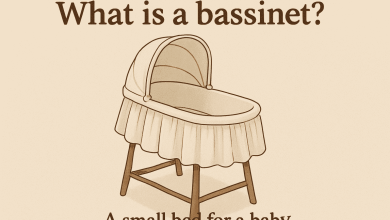Helping Kids Organize Their Spaces

Helping Kids Organize Their Spaces makes life easier for kids with learning and thinking differences. Though there’s a need to invest some effort in the beginning, it’s worth it.
Tips to help kids improve organization skills
Break tasks into chunks
As a parent, you need to help kids break school projects or household chores into more manageable steps. You need to explain to them that each project has a beginning, middle, and end, making projects feel less overwhelming. When your child’s nightly chore is to clear the table, you need to help them scrape any food scraps into the garbage, load the dishes into the dishwasher and then wipe the counters. Teaching the Basics of Organizing assists to a huge extent.
Break their room into zones, like “clothes” or “books”, and assign each zone its own task. Such a measure will make it easier to explain the concept of categorizing categories and using labels. The storage solution allows kids to sort out their things by category. Categories give a clear roadmap to follow, helping complete the organizing task later on. Labels also offer ease for kids to find things that have been misplaced or put away incorrectly.
Making checklists and to-do lists
When kids know all the steps involved with a particular task, add it to an overall to-do list. Also, you will have to include regular homework and chores on the list. One of the things you can do is to encourage kids to keep the list in a place where they can check it often and check off accomplishments.
Teaching calendar and time management skills
Something that you can do to help kids refine their organisational skills is to encourage them to write down important tasks on a calendar. Also, you should help them estimate the amount of time each task will take. After completion of a task, ask whether the time estimated was accurate or not. Also, in case it’s not working that way, teach them adjustments for next time. This move will be beneficial for the kids to write the due date directly on school assignments.
Establishing daily routines
Always focus on creating a regular schedule, as that will benefit the kids and help them learn what to expect throughout the day. What you can do in the process is to involve picture schedules, clocks, and other time management strategies.
Introduction of the idea organizers
As a parent, to build your child’s organisational skills, Show kids how to use outlines, graphic organizers, or concept webs, encourage them to take class notes as a routine listed on a paper and with that, keep prepared all the details. This strategy will help them review the big ideas and see if they can remember the details.
Creating an organized workspace
As a parent, the responsibility is to Set aside spaces at home, letting each child work without interruption. Place it somewhere nearby so that the items are easily accessible when the child needs your assistance. Keep school supplies and technology ready there, and the items to be included here are calculators, tablets, or laptops.
Taking Pictures of the organised space in the house
Once the child’s bedroom is clean and organized, take pictures and place the Photographs of the insides of the closet and drawers, nightstand, and any other storage spaces. Take one from the bedroom door, too. Print photos on one page and hang them on the back of your child’s bedroom door or in a position that makes it easily visible to the child. Your child can see themselves where things belong, and gradually, they’ll learn how their room is supposed to look.
Assign Ownership
Ask the child to create a list of items they want in their room and find ways to make those ideas come alive. Also, ensure that they have the freedom to choose the colours that go on the walls. However, look at creative storage options together or shop for decor pieces that will suit the child’s taste. With these strategies, they will feel empowered and excited about the transformation. Also, the strategy will help instil in them a sense of responsibility for keeping the space presentable. When you present an enthusiastic attitude about cleaning and organizing, children will find the desire to mimic your behaviour.
Encouraging Organization Systems
Labelling boxes and shelves and creating a mini filing system for papers and documents are going to help. Involve creativity, letting the child choose their own materials. Also, the process involves the usage of cartoons, jokes or funny quotes related to the organization that will prove to be engaging and exciting for children. The child will then stick with it to create an organized space of their own.
Celebrate Successes and Reward Progress
Positive reinforcement goes a long way in getting kids to take ownership of the task and develop organizational habits. When you choose to reward a child, they even start taking each step in achieving it when the task is daunting or boring. Regardless of the activity, choose to praise and reward to motivate them.
Final Words
It’s worth noting that it takes time and effort to get your children used to organizing their rooms. However, with regular practice, they will get the skill to create a space that is more organized, inviting and comfortable. Involving your children in the process of organizing rooms will teach them valuable lessons in responsibility, organization, and creativity.
There’s no need to tackle this challenge alone. One of the major approaches to use here is enlisting your kids to help out is a great approach. You need to make them interested in organizing their room by instilling in their mind the idea of neatness. Ignite their enthusiasm for tidying up their own room, and in the long run, they will show better results.




